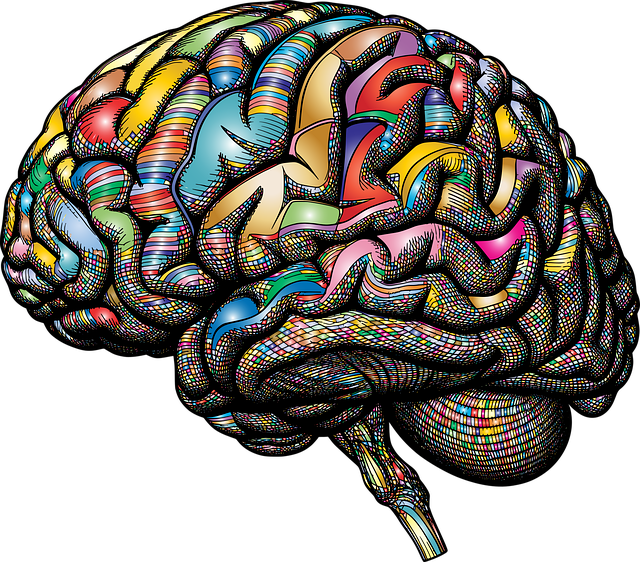Children facing mental health challenges often encounter stigma hindering access to therapy. Christian counseling offers tailored sessions combining evidence-based practices with biblical principles, reducing this barrier. Through community outreach and education, counselors foster open conversations about mental health, emphasizing early intervention. This approach, integrating spiritual beliefs and self-care routines, promotes understanding, empathy, and resilience in children, while also reducing stigma within faith communities and beyond. By involving families and collaborating with local networks, Christian counseling for children enhances support systems and crisis interventions, ultimately aiming for holistic emotional well-being.
Mental illness stigma remains a significant barrier to children receiving the care they need. This article explores comprehensive strategies to reduce this damaging perception, focusing on both individual and collective efforts. We delve into the causes of mental illness stigma, its profound impact on children, and the unique role of Christian counseling in fostering understanding. Additionally, we present effective communication techniques, highlight successful therapies, and emphasize the power of community engagement to create a more inclusive environment for child mental health support, including therapy for children and Christian counseling approaches.
- Understanding Mental Illness Stigma: Causes and Impact on Children
- The Role of Christian Counseling in Combating Stigma
- Strategies for Effective Communication to Reduce Stigma
- Success Stories: Therapies That Work for Child Mental Health
- Community Engagement: Collective Efforts for Change
Understanding Mental Illness Stigma: Causes and Impact on Children

Mental illness stigma can significantly impact children, often hindering their ability to seek help and support. Children are particularly vulnerable to societal perceptions and may internalize negative attitudes, leading to self-stigma and a fear of judgment. This can result in them avoiding therapy or counseling, which are essential tools for managing mental health issues at a young age. In the Christian counseling setting, professionals play a crucial role in fostering understanding and empathy among children.
Through therapy sessions tailored for children, Christian counselors can help build resilience by teaching coping strategies and promoting positive thinking. They offer a safe space where kids can express their feelings without fear of ridicule or rejection. Moreover, community outreach program implementations that involve parents and caregivers can further reduce stigma by educating them about mental health, encouraging open conversations, and emphasizing the importance of seeking professional help early on.
The Role of Christian Counseling in Combating Stigma

Christian counseling plays a significant role in reducing the stigma surrounding mental illness within faith communities and beyond. This therapeutic approach is uniquely positioned to combat stigma by integrating spiritual beliefs with evidence-based practices, offering a holistic understanding of mental wellness. Through personalized sessions tailored to individual needs, Christian counselors create safe spaces for clients to explore their emotional struggles openly, fostering self-awareness and hope.
By combining traditional therapy techniques with biblical principles and prayers, Christian counseling provides effective support for those dealing with various mental health challenges, including depression. Moreover, it emphasizes the importance of self-care routine development for better mental health and encourages individuals to engage in self-awareness exercises aligned with their faith. This inclusive approach not only addresses the symptoms of mental illness but also empowers individuals to strengthen their spiritual resilience, fostering a sense of community and acceptance.
Strategies for Effective Communication to Reduce Stigma

Stigma reduction efforts surrounding mental illness often emphasize effective communication as a key strategy. By fostering open dialogues, we can dismantle misconceptions and promote understanding. Christian counseling services play a vital role in this process, offering therapy for children that integrates faith-based perspectives with evidence-based practices. This approach not only provides trauma support services but also equips individuals with the tools to navigate social interactions, reducing potential triggers for stigma.
Incorporating education and storytelling into communication strategies is impactful. Sharing personal narratives—especially within communities of faith—can humanize mental illness experiences. Social skills training, a component often found in these counseling settings, enhances interaction dynamics, further mitigating the impact of stigma. Ultimately, these collective efforts contribute to broader mental illness stigma reduction efforts, fostering inclusive environments where individuals can seek help without fear of judgment.
Success Stories: Therapies That Work for Child Mental Health

In the realm of mental illness stigma reduction, success stories abound, particularly when it comes to therapies that target children’s mental health. Christian counseling, for instance, has shown remarkable effectiveness in supporting young individuals facing various challenges. This therapeutic approach offers a safe and supportive environment where kids can openly discuss their feelings and experiences, fostering growth and healing.
By integrating evidence-based practices tailored to each child’s unique needs, therapists skilled in Christian counseling help them develop essential coping mechanisms and build resilience. Moreover, these therapies often extend beyond the individual, encouraging family involvement to strengthen support systems and prevent burnout. Public awareness campaigns development and initiatives focused on self-care routine development for better mental health play a crucial complementary role, ensuring that children and their families have access to resources promoting overall well-being.
Community Engagement: Collective Efforts for Change

In reducing the stigma surrounding mental illness, community engagement plays a pivotal role. Collective efforts from diverse groups—including local organizations, schools, and faith-based communities—can foster understanding and empathy. Christian counseling centers, for instance, can offer therapy for children, providing not only treatment but also educational resources to dispel myths about mental health. By integrating emotional well-being promotion techniques into their programs, these centers contribute to a broader movement that challenges societal norms and encourages open conversations around mental illness.
Crisis intervention guidance is another vital aspect where community engagement shines. Collaborating with local authorities, healthcare providers, and support groups enables the development of effective strategies for addressing acute mental health crises. Through joint initiatives, communities can ensure better access to resources, prompt interventions, and long-term support, ultimately enhancing emotional regulation skills among its members.
Mental illness stigma reduction is a multifaceted endeavor, requiring understanding, education, and collective action. By addressing its causes and recognizing the impact on children, we can create a more supportive environment through effective communication strategies and community engagement. The article highlights the positive role of Christian counseling in providing therapy for children, offering hope and healing. Together, these efforts foster a culture of acceptance and encouragement, ensuring that children struggling with mental health issues receive the necessary support and care.











